60 Years of the Hugo Awards
 Thanks to our friends at The Encyclopedia of Science Fiction – and, in particular, their indispensable On This Day function, we see that the first Hugo Awards were presented 60 years ago, today, at Philcon II (the second Philadelphia Worldcon).
Thanks to our friends at The Encyclopedia of Science Fiction – and, in particular, their indispensable On This Day function, we see that the first Hugo Awards were presented 60 years ago, today, at Philcon II (the second Philadelphia Worldcon).
Alfred Bester‘s The Demolished Man was the winner of the inaugural Best Novel award, with a couple of other familiar names in the prizes: Philip José Farmer won the Hugo for Best New Author or Artist, the original Big Name Fan Forrest J. Ackerman won #1 Fan Personality and the Best Professional Magazine Prize was shared between Galaxy, edited by H.L. Gold and Astounding Science-Fiction, edited by the legendary John W. Campbell.
No awards were given in 1954 but from 1955 to the present, the science fiction community has recognised what it considers to be the best work of the year with the Hugo Award – as it did just last weekend. Congratulations are due to all of the winners, but a special mention to John Scalzi for his Best Novel Hugo for Redshirts (published by Tor in the US and *ahem* Gollancz in the UK), Brandon Sanderson for the Best Novella award with The Emperor’s Soul (Tachyon in the US and – oh look! Gollancz in the UK) and SF Gateway’s own Pat Cadigan – currently our Author of the Month – for ‘The Girl-Thing Who Went Out for Sushi’, which won the Best Novelette award.
Congratulations to all of 2013’s winners and nominees. We’re especially pleased to see the Hugo Award for Best Editor, Short Form go to Stanley Schmidt, outgoing editor of Analog, who retired from that esteemed journal in August last year after thirty-four years as editor! Remarkably, the magazine has only had six editors since it began life as Astounding Science-Fiction in 1930: Harry Bates (1930-33), F. Orlin Tremaine (1933-37), John W. Campbell (1937-71), Ben Bova (1971-78), Stanley Schmidt (1978-2012) and now Trevor Quachri.

